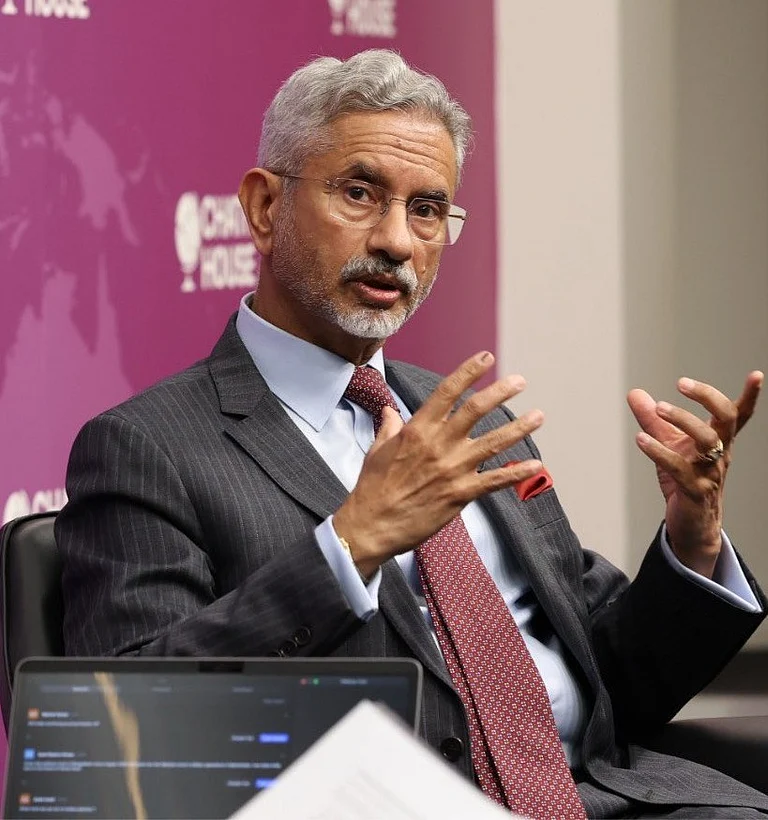David Lammy, the recently appointed Foreign Secretary of Labour, has just returned from a trip that has the potential to revolutionise Britain's place in the world, amidst the intense heat of New Delhi. Only a few weeks into his job, this trip is far more than a conventional diplomatic ploy—rather, it's a daring declaration of Labour's intention to completely rewrite UK foreign policy for the post-Brexit age. With Lammy's India trip, UK-India relations have reached unsettling lows, marking a dramatic shift from the Corbyn era strategy.
The purpose of this two-day visit is to revitalise the UK-Indian alliance by obtaining an FTA and tackling global issues. It denotes a practical acceptance of India's growing international prominence and the advantages of closer bilateral relations for both countries. But this strategic turn will put Labour's diplomatic skills and political balancing act to the test as it faces numerous domestic and international obstacles.
Global Politics and Economic Imperatives
At the heart of Lammy's agenda lies the pursuit of an FTA with India, underscoring Labour's commitment to stimulating Britain's post-Brexit economy through enhanced trade partnerships. With India projected to become the world's third-largest economy by 2030, securing preferential access to this market could provide a much-needed boost to UK businesses. However, negotiating an FTA with India is no simple task. Previous talks have stalled over issues such as mobility of professionals, intellectual property rights, and market access in key sectors like financial services and agriculture.
Beyond economics, Lammy's visit signals a shift towards pragmatism and strategic engagement in the Indo-Pacific. As global power dynamics evolve, Britain seeks to assert its relevance in this crucial region, with India playing a central role in these ambitions. The emphasis on shared threats, particularly concerning China's growing influence, suggests a degree of bipartisan consensus on the UK-India strategic partnership.
Yet, this alignment with India to counterbalance China's influence is not without risks. It could potentially antagonise Beijing, complicating economic engagements crucial for global recovery. Moreover, Labour must reconcile India's non-aligned stance and its relationships with countries like Russia, which may not always align with UK interests. India's continued purchase of Russian oil, for instance, presents a moral and strategic dilemma that Lammy must address without derailing the broader relationship.
Domestic Politics and Historical Complexities
Labour's approach to India is closely connected to its internal political priorities. The party has to strike a careful balance while attending to the worries of its wide range of supporters. Labour must avoid alienating its followers of Pakistani descent and British Sikhs, a portion of whom have sympathy for the Khalistan cause, in the process of courting the British Indian vote, a population that has been trending towards the Conservatives.
The intricate relationship between South Asian geopolitics and British domestic politics is highlighted by the communal conflicts in Leicester and pro-Khalistan demonstrations across the United Kingdom. Labour's approach is further complicated by the fact that these episodes serve as a clear reminder of how tensions in the subcontinent might spill over onto British streets.
The legacy of Labour's past engagement with India also casts a long shadow. From Clement Attlee's criticised handling of partition to Jeremy Corbyn's controversial stance on Kashmir, the party has often found itself at odds with Indian sensibilities. Lammy's visit represents a calculated effort to reset this strained relationship, but he must navigate the delicate balance of addressing historical grievances while charting a new course for the future.
Global Engagement and Future Prospects
Lammy's diplomatic efforts come at a time when the UK is reassessing its relationships within Europe and beyond. His earlier meetings with European leaders were aimed at reinforcing ties post-Brexit, and his visit to India serves to complement these efforts by demonstrating the UK's commitment to engaging with significant non-European partners. The Labour government recognizes the need for a diversified foreign policy that includes strong ties with both the EU and key players in the Asia-Pacific region.
The visit to India is part of a larger UK strategy to enhance its presence in the Indo-Pacific, which includes participation in trade agreements like the Comprehensive and Progressive Agreement for Trans-Pacific Partnership (CPTPP). Lammy's attendance at the ASEAN Foreign Ministers' meeting further underscores the UK's commitment to strengthening economic and security partnerships in this dynamic region.
As part of the UK's commitment to addressing the climate crisis, Lammy plans to collaborate with India on clean energy transitions and climate resilience projects in the Global South. The meetings will provide an opportunity to galvanise support for accelerated action on climate change, with India as a crucial partner.
While the focus remains on strengthening ties, Lammy may also raise issues regarding pending extradition cases involving Indian businessmen and the imprisonment of British nationals in India. These discussions will highlight the importance of human rights and the rule of law in the UK-India partnership.
Stakes are high as this diplomatic manoeuvre plays out. If effective, this plan has the potential to completely rethink not only UK-India relations but also Britain's strategy for engaging with the world in the twenty-first century. A complex diplomatic project, Labour's India strategy aims to strengthen UK-India relationships, improve trade connections, and strategically place the UK within the EU and Asia-Pacific regions' changing geopolitical landscape.
Labour is aggressively pursuing its foreign policy goals in the area of international diplomacy, and the results of this India approach may have a lasting impact on the party's foreign policy heritage. One thing is certain as the world waits impatiently: Lammy's travel to India is not merely about bilateral relations but also about altering Britain's position in a world order that is changing quickly.
(Ashraf Nehal is a South Asian politics postgraduate from SOAS, University of London, with extensive experience covering politics of the region.)
























